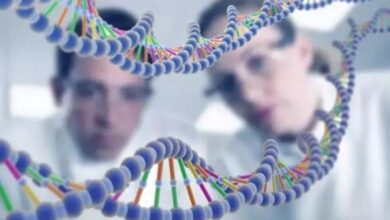Gut bacteria and child growth delay: an overlooked determinant

Over the past decade, scientific research has increasingly highlighted the profound influence of the gut microbiome on human health. Today, mounting evidence points to an underestimated factor in childhood growth delays: the composition and balance of intestinal bacteria. This phenomenon, frequently observed in low- and middle-income countries but also present in malnutrition cases in wealthier nations, offers new avenues for prevention and treatment.
-
4 Types of Gut Bacteria Linked to Living Up to 100 Years
-
Study – Can Gut Bacteria Cause Rheumatoid Arthritis?
The gut microbiome: a complex ecosystem
The human intestine hosts trillions of microorganisms that form the gut microbiome. This intricate ecosystem, consisting of beneficial bacteria, yeasts, and viruses, plays a vital role in digestion, immune regulation, and energy metabolism. In children, whose bodies are still developing, a well-balanced microbiome is particularly crucial, as it directly influences bone growth, brain maturation, and overall physiological development.
Revealing studies
Research conducted in Africa and Asia has shown that children suffering from stunted growth often exhibit disrupted microbial communities, characterized by low diversity and an overrepresentation of harmful species. When compared with healthy peers, these children’s microbiomes lack specific bacteria that produce short-chain fatty acids, essential for nutrient absorption and cellular growth.
-
Sweeteners Have Toxic Effects on Some Good Gut Bacteria
-
Dark Chocolate: The Hidden Secret to Boosting Gut and Brain Health
A landmark study published in Science demonstrated that transferring healthy microbiomes into experimental mice improved their growth rates. This finding suggests that microbiome-targeted interventions could become an innovative therapeutic pathway.
The link between nutrition, inflammation, and the microbiome
Chronic malnutrition, often tied to diets deficient in protein and micronutrients, fosters an impoverished and imbalanced microbiome. This creates a vicious cycle: a weakened microbiome hampers nutrient absorption, which in turn exacerbates malnutrition and hinders growth.
-
Gut Microbes: A Potential Key to Treating Insomnia
-
A Hidden Warning: What the Smell of Intestinal Gas Can Reveal About Your Gut Health
Moreover, pathogenic bacteria can trigger chronic inflammation of the intestinal lining, further reducing nutrient uptake. In children, this mechanism directly contributes to stunting and underweight conditions.
Therapeutic and preventive approaches
Researchers are testing multiple strategies to restore a healthy gut microbiome:
- Probiotics: supplementation with beneficial bacteria such as Lactobacillus and Bifidobacterium.
- Prebiotics: targeted dietary fibers that promote the growth of beneficial microbes.
- Fermented foods: natural sources of microbiome enrichment.
- Tailored dietary interventions: protein- and micronutrient-enriched diets combined with microbiome-based supplementation.
Experimental studies are also exploring controlled fecal microbiota transplantation, an emerging but promising method.
-
Gut Health After 40: The Changes You Need to Know
-
Animal or Plant-Based Iron – Which One Does Your Gut Prefer?
Public health implications
According to UNICEF, nearly 150 million children worldwide suffer from stunted growth. Addressing the role of the gut microbiome in this condition represents a critical step in reducing child mortality and enhancing long-term physical and cognitive outcomes.
The connection between gut bacteria and growth delay marks a turning point in combating childhood malnutrition. While nutrition remains central, it is increasingly evident that the gut microbiome plays a decisive role in child development. Combining nutritional programs with strategies aimed at restoring microbial balance may significantly improve child health on a global scale in the years ahead.












